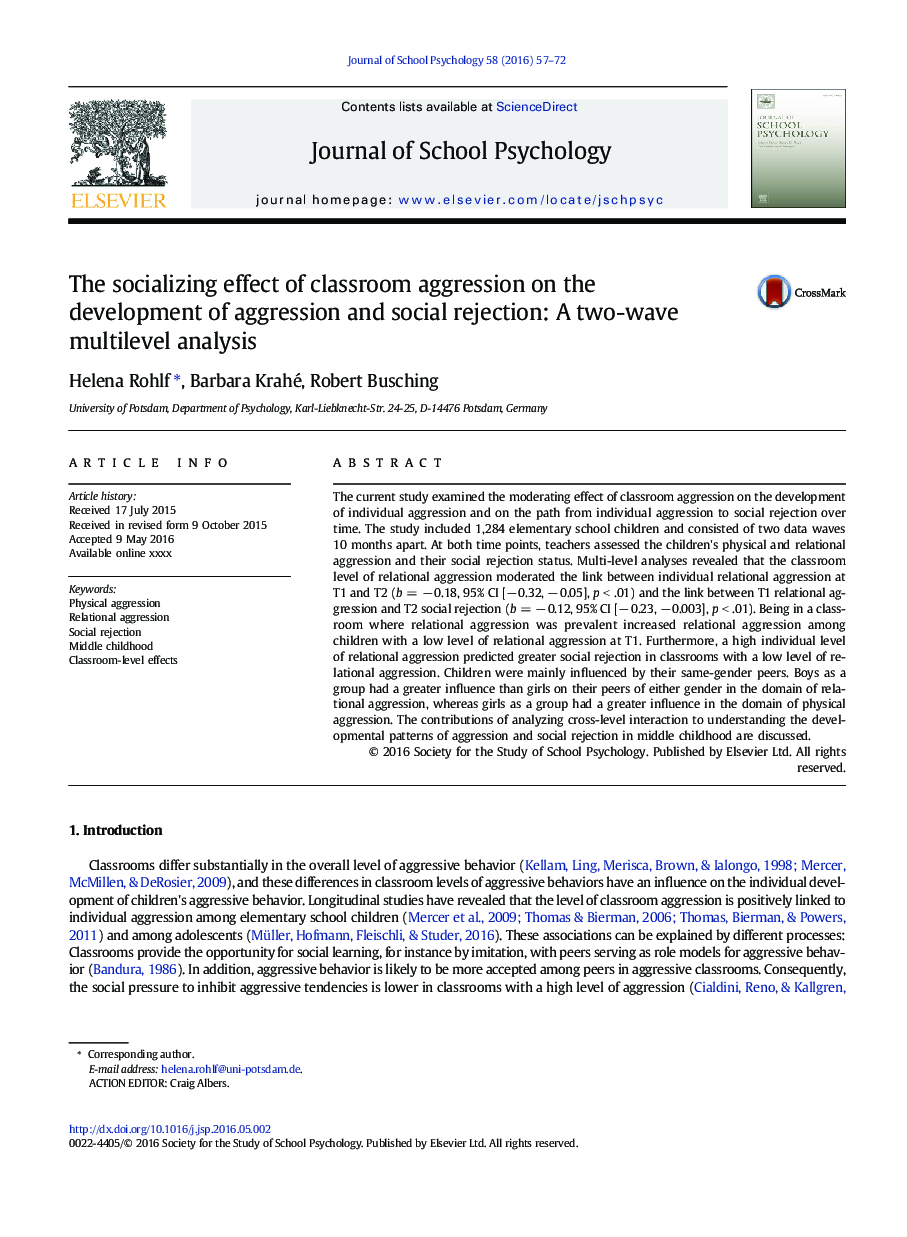| Article ID | Journal | Published Year | Pages | File Type |
|---|---|---|---|---|
| 363445 | Journal of School Psychology | 2016 | 16 Pages |
The current study examined the moderating effect of classroom aggression on the development of individual aggression and on the path from individual aggression to social rejection over time. The study included 1,284 elementary school children and consisted of two data waves 10 months apart. At both time points, teachers assessed the children's physical and relational aggression and their social rejection status. Multi-level analyses revealed that the classroom level of relational aggression moderated the link between individual relational aggression at T1 and T2 (b = − 0.18, 95% CI [− 0.32, − 0.05], p < .01) and the link between T1 relational aggression and T2 social rejection (b = − 0.12, 95% CI [− 0.23, − 0.003], p < .01). Being in a classroom where relational aggression was prevalent increased relational aggression among children with a low level of relational aggression at T1. Furthermore, a high individual level of relational aggression predicted greater social rejection in classrooms with a low level of relational aggression. Children were mainly influenced by their same-gender peers. Boys as a group had a greater influence than girls on their peers of either gender in the domain of relational aggression, whereas girls as a group had a greater influence in the domain of physical aggression. The contributions of analyzing cross-level interaction to understanding the developmental patterns of aggression and social rejection in middle childhood are discussed.
